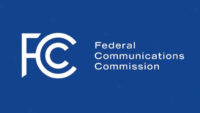FCC Preps Draft Proposal That Plans to Restore Net Neutrality
September 28, 2023
Championed by the Democratic members of the Federal Communications Commission, net neutrality rules are making a comeback now that the party again controls the FCC’s majority. Enacted when Barack Obama was president and repealed in 2017 during the Trump administration, the guidelines that once prohibited telecommunications and cable companies from blocking or throttling smaller content platforms, or those in which they had no ownership stake, could get a vote as early as next month. Speaking at the National Press Club, FCC Chair Jessica Rosenworcel said she is “sharing with [her] colleagues a rule making that proposes to restore net neutrality.”
Rosenworcel’s remarks follow Senate confirmation of Anna Gomez as a fifth FCC commissioner this month, giving the Democrats a majority and breaking a 2-2 deadlock. Rosenworcel is expected to release text of the draft proposal on Thursday,” The New York Times reports, describing that as “a first step” to be followed by an October 19 commission vote on the proposal.

“If approved, there will be a period of public comment and replies for a few months” and “the commission will likely vote on the final rules next year,” NYT says.
Although cable and telecom firms have opposed net neutrality, characterizing it as regulatory overreach, the issue has “stirred waves of public interest,” NYT writes, noting that “there have been street protests, torrents of email comments and even threats of violence against commissioners who opposed the earlier net neutrality rules.”
Net neutrality has broadband providers fearing they will be classified as “common carriers,” the same as phone companies, which opens the door to additional regulation as well as government price setting, as with other public utilities. Progressives see the rules as a needed restraint on corporate power and a campaign to keep the Internet open and fair,” per NYT.
CNN reports that “high-speed Internet providers such as AT&T, Comcast and Verizon” are among those potentially affected, with rules that would ban ISPs “from blocking or slowing down access to websites and online content.”
In addition, the draft rules also seek to prohibit ISPs “from selectively speeding up service to favored websites or to those that agree to pay extra fees,” CNN writes, quoting Rosenworcel speaking out against “the emergence of ‘fast lanes’ on the web that could give some websites a paid advantage over others.”
If enacted, the proposal “would treat broadband as an essential service like water,” Bloomberg writes.

No Comments Yet
You can be the first to comment!
Leave a comment
You must be logged in to post a comment.